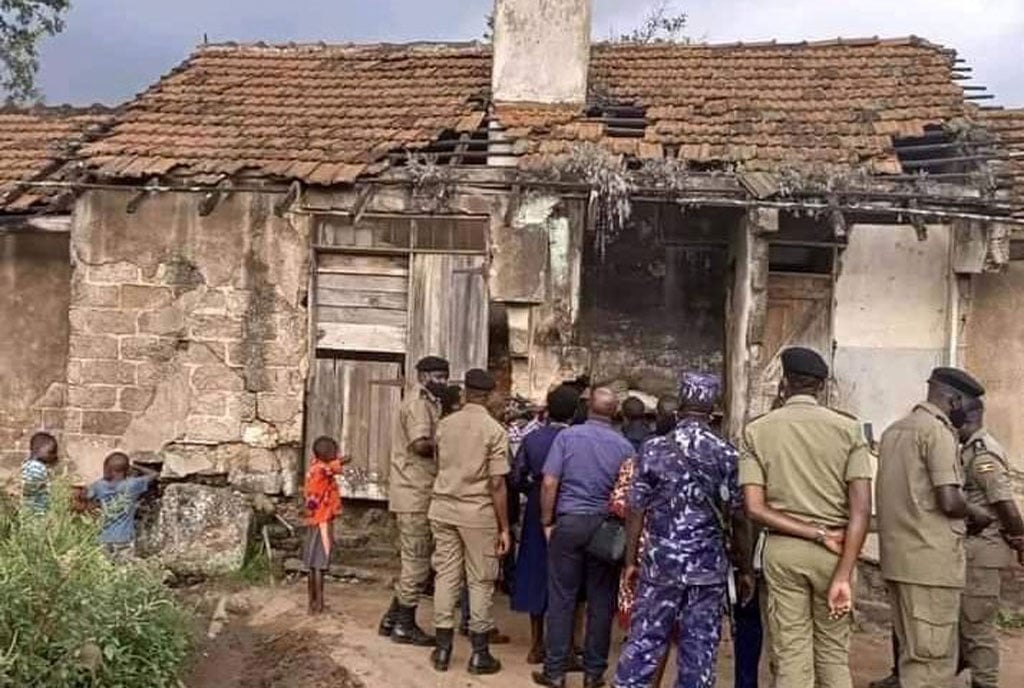Lawyer, spy, politician now eyes State House

Prime Minister Mizengo Pinda answers questions from journalists at the CCM headquarters in Dodoma yesterday after he had collected presidential nomination forms. PHOTO | EDWIN MJWAHUZI
What you need to know:
In the spirit of disclosure, Mr Pinda went ahead and announced that, after three decades of being a civil servant and a politician, he had only about Sh20 million in his account. By the standards of other politicians and civil servants of his calibre, he added, he was a poor man.
Dodoma/Dar es Salaam. When Mizengo Pinda was appointed the Prime Minister in February 2008, he seemed the most unlikely candidate for the job. Yet the man who describes himself as a peasant’s son and humble public servant would go on to rise from the corridors of justice to the third most powerful political position in the land.
In the spirit of disclosure, Mr Pinda went ahead and announced that, after three decades of being a civil servant and a politician, he had only about Sh20 million in his account. By the standards of other politicians and civil servants of his calibre, he added, he was a poor man.
His simple dress code summed up what Mr Pinda really was. And when he rose to address the National Assembly shortly after he was appointed the Prime Minister, his words echoed his outlook.
Mr Pinda’s background won him many supporters and sympathisers. They saw him as a man who had little appetite for a lavish lifestyle, making him morally fit to take over the premiership after Edward Lowassa’s dramatic resignation.
Born and raised in a very humble family, he said he never dreamt that he would be the premier some day and was stunned by the turn of events.
The peasant’s son hit the ground running with a chain of promises. He would put an end to expensive cars for government officials. Albino killings would be a thing of the past—as would corruption in the government. Above all, he would put a stop to the culture of seminars and workshops, which he considered a burden for taxpayers.
Whether Mr Pinda is still the peasant’s son he declared himself seven years ago depends on who you ask, but the man is now eyeing the presidency.
After nearly eight years as Prime Minister, Mr Pinda embarked yesterday on the political path to succeeding President Jakaya Kikwete. He becomes Candidate Number 30 in an overcrowded race within the ruling party.
But unlike 2008, Mr Pinda did not declare how much is in his bank account plus any other properties. Instead, the man who promised to do away with luxury vehicles claims he wants to rid Tanzania of corruption should he be the chosen of CCM presidential candidate.
Under his leadership, though, four-wheel luxury vehicles have been the number one choice in the government and seminars appear to be here to stay—at the expense of taxpayers, of course. Oh, yes, and albino killers are still combing the country for their prey even after Mr Pinda made an emotional appeal in a speech in Parliament. For the first time ever, the premier wept as he spoke of the ordeal that people with albinism face.
And Mr Pinda’s promise notwithstanding, there are hundreds of seminars and workshops every year, accompanied by hefty allowances—a burden that the taxpayer must bear. Though he is personally not tainted by corruption, the local government docket—which is under his watch—has led the pack when it comes to corrupt deals and tenders, according to various audit reports prepared by the Controller and Auditor General (GAG).
In response to another question, Mr Pinda said his mission to reduce unnecessary expenditure arising from fuel guzzlers and seminars has paid off as there is no government official who now buys a Toyota VX8 without first consulting him.
Mr Pinda has spent his entire life in public service. After completing his studies at the University of Dar es Salaam, he worked as a government legal officer before President Julius Nyerere picked him as his personal assistant.
He then served as secretary to the Cabinet after his bid to be an MP failed in 1995. In 2000, he was elected MP and President Benjamin Mkapa appointed him deputy minister responsible for Local Government, serving under Brigadier General Hassan Ngwilizi.
When President Kikwete came to power in 2005, Mr Pinda was appointed a full minister in the same ministry. In 2008, when Edward Lowassa resigned in the wake of the Richmond scandal, Mr Kikwete named Mr Pinda the Prime Minister.
Ready to lead?
Mr Pinda picked presidential nomination forms yesterday with a promise to form an autonomous and robust anti-corruption agency to fight corruption, which he declared the fourth enemy of the nation after disease, ignorance and poverty.
Mr Pinda, a lawyer-turned-spy and then a politician, has added corruption and environmental destruction to the three enemies of the state Mwalimu Nyerere declared—poverty, ignorance and disease.
According to Mr Pinda, the Constituent Assembly’s decision to make the Prevention and Combating of Corruption Bureau (PCCB) an organ recognised constitutionally would ease his work by giving it strength, teeth and independence to tackle graft.
“And in order to ensure that good governance is observed,” he added, “we all need to embrace transparency in whatever we are doing, accountability and for leaders to put people’s interests at heart when discharging their duties.”
Addressing journalists at CCM headquarters shortly after picking the forms, Mr Pinda said he was fit for the job because, after working closely with all three past presidents and the current one, he knows the government better than anyone else.
“I have worked very closely with local authorities, which are at the heart of implementation of government plans,” he said amid cheers from his supporters. “If there is anyone who knows what is needed to advance this country, that person is me.”
Under his watch as Prime Minister, he added, the country had carried out tremendous transformation and built the foundations upon which he would now embark to build the national economy. And he claimed credit for every achievement the ministers had made because, as he put it, he had been the one to push them to do what was required of them.
Then came a word of caution from the man who would be president: “If you want to pick someone who doesn’t know how the government works, you will be making a huge mistake. He will have to learn how to do things and he might blunder. For my part, I will hit the ground running because I know what needs to be done.”
Though he could not pinpoint anything new that he would do if elected the president, Mr Pinda said he was confident that he would not fail to implement the CCM election manifesto that would outline what his government would do.
He noted that, according to advice from experts, the country now needs to focus on sectors that engage majority of Tanzanians. “The experts have told us that we have done very well in building the economy but the problem is that we have focused on sectors whose achievements do not trickle down to many people... sectors such as transportation and construction. We are now going to focus on sectors which will directly touch affairs of farmers, fishermen, herders and bee keepers like me.”
According to Mr Pinda, the economy is growing at seven percent currently but experts have said that the economy should grow at the rate of between eight and 10 per cent if it is to have an impact on the people. “Nevertheless, he added, “this growth has placed Tanzania among the top 10 countries in Africa whose economies are growing fast and among the top 20 countries in the world.”
Just in case you did not get it right the first time, he denied having declared that he would not vie for the presidency because it was a taxing job. Even if he had said so in 2012, he declared, it would not be a problem if he chose to change his mind.




